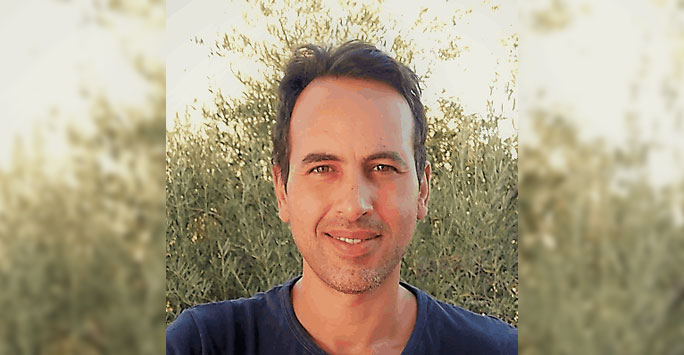
This month, we are pleased to feature Dr Eduardo Coutinho, a Senior Lecturer at the Department of Music. In this blog, Eduardo tells us all about his fascinating research into the emotional impact music can have on its listeners, and how this can affect our mental wellbeing and cognitive performance, and what the social and clinical implications of these may be.
You can listen to Eduardo talk about his work and wider research interests in our 'researcher in focus' podcast here.
Dr Eduardo Coutinho joined the University of Liverpool in 2015 and is currently a Senior Lecturer in the Department of Music. Before his appointment at our University, he worked at Imperial College London and the University of Sheffield (UK), the Technical University of Munich and University of Augsburg (Germany), and the Swiss Centre for Affective Sciences (Switzerland). Eduardo’s background and research span different fields with an emphasis on the interdisciplinary areas of Music Psychology and Affective Sciences (often involving Computer Sciences and Machine Learning).
Eduardo’s early research focused on music and affect and he has contributed significantly to a broader understanding of the emotional impact of music on listeners, namely on the link between music structure and emotion, the types of emotions induced by music, and individual and contextual factors that mediate the relationships between music and emotion.
Since arriving in Liverpool, Eduardo’s research has focused on the uses of music that involve the regulation of physical, affective, and cognitive states in everyday life. These uses of music have tangible and important functions in people’s day-to-day activities (e.g., engagement with physical exercise, mood regulation, improved concentration), however, barriers of different kinds prevent people from harnessing these benefits in effective and meaningful ways. Eduardo’s work focuses on mitigating these barriers and creating the conditions that can enable the power of music listening and participation in everyday life, especially in supporting better health and wellbeing.
Eduardo believes that these aims and their potential impact can only be achieved through inter- and transdisciplinary research and societal collaborations that involve both academic and non-academic partners. With this in mind, he founded the APPLIED MUSIC Research Lab (AM Lab), an interdisciplinary research group (based at the Department of Music), whose mission is to help people live better through music. The AM Lab aims to develop our understanding of the principles and mechanisms that underlie the power of music but also on the practical application of music uses and adoption pathways.
Music and mental and physical wellbeing
Currently, the AM Lab is working on various projects in a diverse range of clinical and non-clinical domains. For instance, POLYHYMNIA Mood is an app that attempts to empower people living with depression to effectively elevate their moods through music listening. This is important because many people suffering from low mood use music in unhealthy ways (read more about this project here).
Together with the Department of Musculoskeletal Biology (Dr Kris D’Aout) and the School of Health Sciences (Dr Jonathon O’Brien) in Liverpool, they have also been working on empowering stroke survivors to enhance physical rehabilitation outcomes through music listening. In collaboration with VIBE Music Therapy Ltd and the Cheshire and Wirral Partnership NHS Foundation Trust, we are working on the generation of evidence and new objective measures of the benefits of Music Therapy for the treatment of Eating Disorders.
During COVID we also developed MUSIC.ME - a web app that helps people discover music popular in their youth in the country where they grew up. Listening to music from our past can evoke vivid memories filled with the most profound emotions and for people living with dementia, this phenomenon is particularly important. The aim is to support people with dementia, and their families and caregivers by using music to improve their wellbeing. We are starting to exploring the role of music listening in the cardiovascular health domain in a new collaboration with the Centre for Cardiovascular Science (Professor Gregory Lip).
The AM Lab also tries to cultivate the applied focus in future generations of researchers and so Eduardo’s PhD students have also been developing critical work with tangible societal impact. For instance, one project aims to develop a new toolkit for enabling collaborative music composition activities for people living with dementia and their caregivers. The aim is to encourage engagement with creative activities, reminiscence work, social interaction and give the brain and body a bit of stimulating exercise. The focus on a toolkit is a fundamental step towards the systematic delivery of these interventions and the benefits they bring to participants (see some of the events related to this project on this page).
Music to study to?
Outside the health and wellbeing domain (also very much the AM Lab’s focus),we have been studying the impact of music listening on mental work. Listening to music whilst studying is an impressively common habit, but there are many reasons to believe that it can hinder our performance on cognitive tasks, and reduce study quality and potential academic achievements. At the same time, it is a source of motivation, endurance, and positive mood regulation (which also favours performance).
Through an ecological approach, we are trying to clarify this apparent contradiction, which is revealing key information with relevance to those that study (or work) with music. For instance, the impact of music (negative or positive) depends on the task, characteristics of the music one listens to, and individual traits of listeners. Soon it will also clarify the interplay between the positive and negative impacts that it can have on realistic settings.
Learn more about Eduardo’s teaching and research on his staff profile page and about the AM Lab on the group's website.